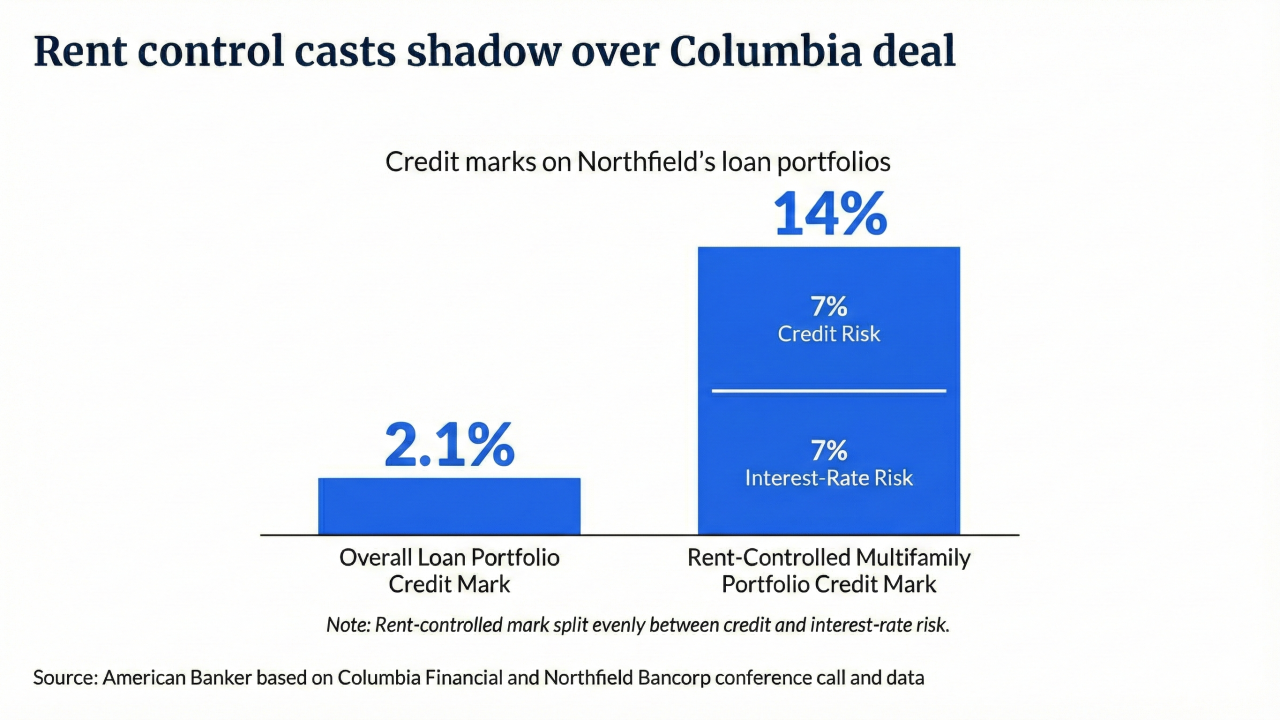- Key Insights: The Bank of England is proposing stablecoin ownership caps.
- What's at Stake: The caps are designed to manage bank deposit risk, but critics say they would harm innovation.
- Forward Look: The BofE is working on a final proposal to publish before the end of the year.
While stablecoin-friendly regulations have advanced in the U.S. and the European Union, the U.K. is taking a tougher stance.
The Bank of England by December plans to publish a consultation paper that updates
With the end of 2025 approaching, cryptocurrency advocates are pushing back at the rules, contending limits will hurt the U.K. competitively against the U.S. and the EU.
"The U.K. is taking a more defensive, risk-conscious view within the context of a rapidly evolving, competitive global landscape," said Mark Aruliah, who is the head of EMEA Policy and Regulatory Affairs at Elliptic, a blockchain transaction monitoring firm with offices in London, New York and Singapore. "Although the Bank's position may be well-meaning to address key risks such as monetary policy, market integrity and consumer protection, the clarity of this proposal is unclear and has the potential for operational complexity and costs to U.K. businesses," Aruliah told American Banker.
What the U.K. may do
The Bank of England referred questions to its initial consultation paper from 2023, and a more
Many of the BoE rules mirror governance for stablecoins similar to the
BoE officials may impose caps of 10,000 British pounds to 20,000 British pounds (or about $13,600–$27,200) for individuals and 10 million British pounds (about $13.6 million) for businesses. The BoE is defining the limits for "systemic stablecoins," or tokens that are used for payments in the U.K., or may be in the future.
"We need to recognize which hat the BoE is wearing," Gareth Lodge, a London-based senior analyst at Celent, told American Banker. "They were looking at the stability of the financial sector. As such, they are quite rightly thinking about what would happen if there was a swath of money that would move into a stablecoin."
Read more about stablecoins.
The U.K. Crypto Asset Business Council, which
"Many suggest that an overly restrictive regime could divert institutional investment and innovation to more permissive jurisdictions," Aruliah said. The BoE said the caps are not set in stone, and would be transitional if imposed.
"To be clear, we are still engaging with industry and listening to feedback, so these proposals are not finalized," Mills said in her recent speech. "We will be consulting on the precise details of this and other parts of the Bank's requirements later this year."
Other options
The battle over stablecoins is similar to earlier battles over
The BoE has "always been clear" that central bank money should be the primary settlement asset in the financial system, the central bank said, but it is also "open minded to stablecoins being able to provide innovation that could also be useful for wholesale markets." The BoE was referring to using stablecoins for "wholesale" purposes, which would include moving large sums between banks or across borders and are considered less risky than retail use by consumers. The BoE is additionally exploring
"We are also engaging with industry on a range of industry-led solutions in this space, which we are pleased to see," Mills said.
With the current U.K. stablecoin proposal, it is likely that there will be a few U.K. GBP stablecoin issuers that will be under U.K. regulators, but there may be considerably more non-U.K. GBP stablecoin issuers offering stablecoins to U.K. consumers, as the draft regime allows, Aruliah said.
"In these instances, the U.K. regulators will have limited purview on how U.K. consumers utilize stablecoins, and this recent suggestion by the central bank may potentially lead to operationally complex and costly models for business."






